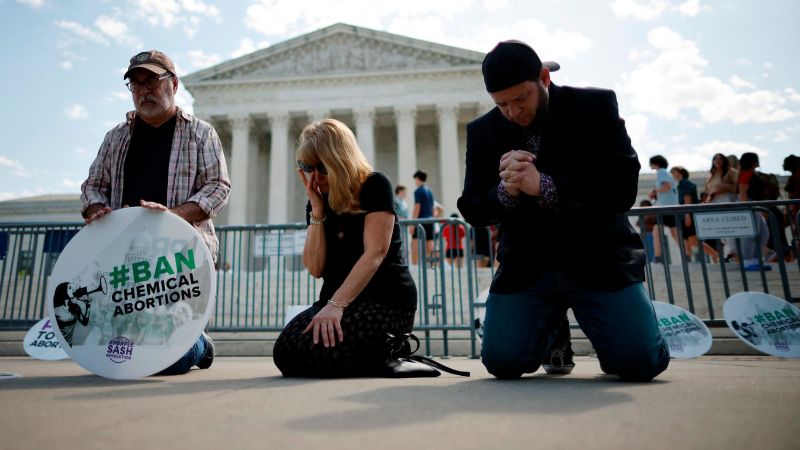The Supreme Court said Wednesday it will consider whether to restrict access to a widely used abortion drug — even in states where the procedure is still allowed.
The case concerns the drug mifepristone that — when coupled with another drug — is one of the most common abortion methods in the United States.
The decision means the conservative-leaning court will again wade into the abortion debate after overturning Roe v. Wade last year, altering the landscape of abortion rights nationwide and triggering more than half the states to outlaw or severely restrict the procedure.



There’s no redeemable legal right to “bodily autonomy.” Abortion was protected by the Constitution only under an implied privacy rubric. I understand what you’re saying and I agree wholeheartedly, it’s just the law doesn’t recognize mere bodily autonomy as something that’s protected. The protections for this stuff are rooted in privacy, due process.
I get flamed everytime I bring this up, but the sovereign has a right to perpetuate itself. In other words, part of the constitutional compact–the trade off between the people the new federation, the consent of the people to give away certain natural law freedoms in exchange for our great experiment in government by the people–is that the federation has a mandate to preserve it’s continued existence.
So, hypothetically, think of the plot of the movie Outbreak: a viral pathogen so deadly and so out of control that the entire country might be deceased within weeks if the spread is not halted, and so the government deploys strategic bombing against its own cities. The Supreme Court has always upheld reasonable, good faith vaccine mandates, quarantines, military drafts, limitations on habeas corpus, travel restrictions, and many many varieties of forced medical procedures, not to mention all the regulatory action on food and drugs, that are certainly less intrusive but potentially no less matter of life and death, such as bans on experimental medication and procedures.
Are not seatbelts and drunk driving laws restrictions on bodily autonomy? I mentioned prison and habeas corpus, but the whole thing there, and especially the Fourth and Eighth Amendments pretty obviously limits bodily autonomy, you know, if you get sentenced to prison, aside from habeas corpus, the right to bodily autonomy is massively limited and virtually everyone is fine with that.
All I’m saying is that bodily autonomy is a crap argument, it’s obviously not something that’s legally sacrosanct, and it’s obviously something that yields to the most mundane of reasons, such as the little kid, seven or eleven years old or something, that was placed under custodial arrest for public urination. I mean if the law allows your right to bodily autonomy to break for public urination, do you ever have a redeemable right of bodily autonomy? How many people lost their bodily autonomy for decades for some weed?